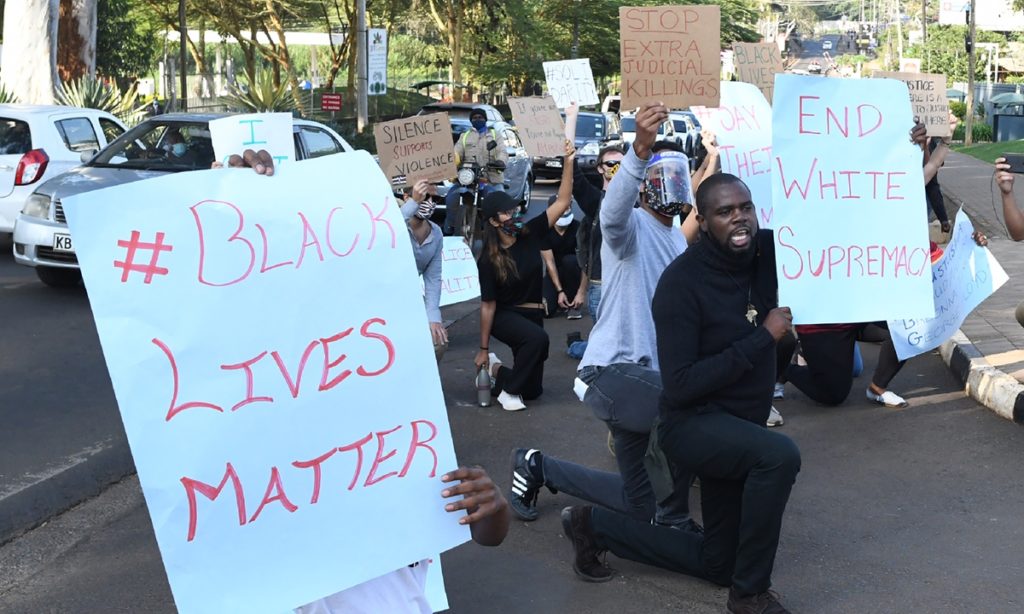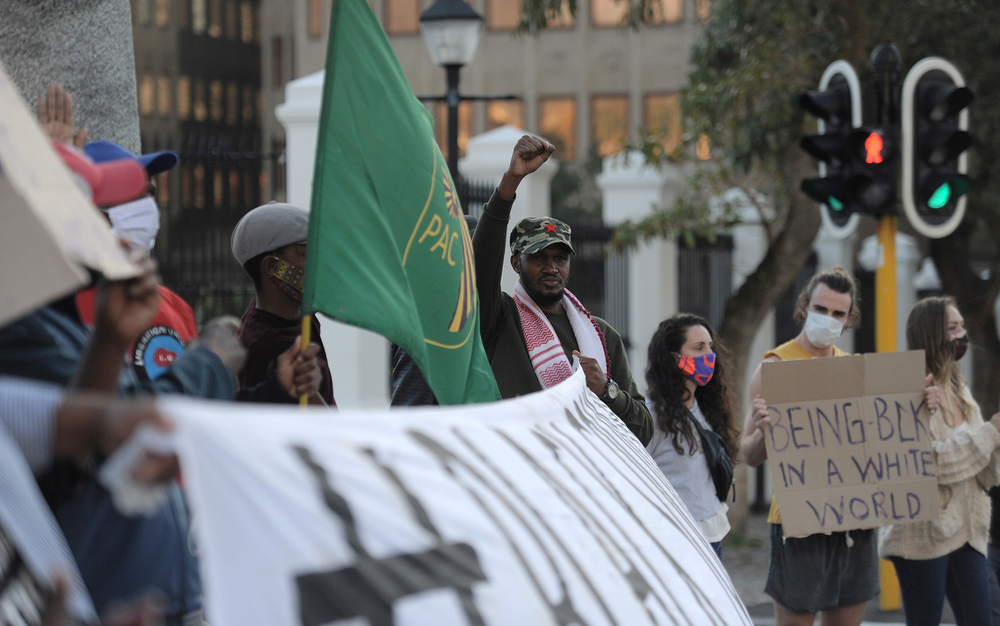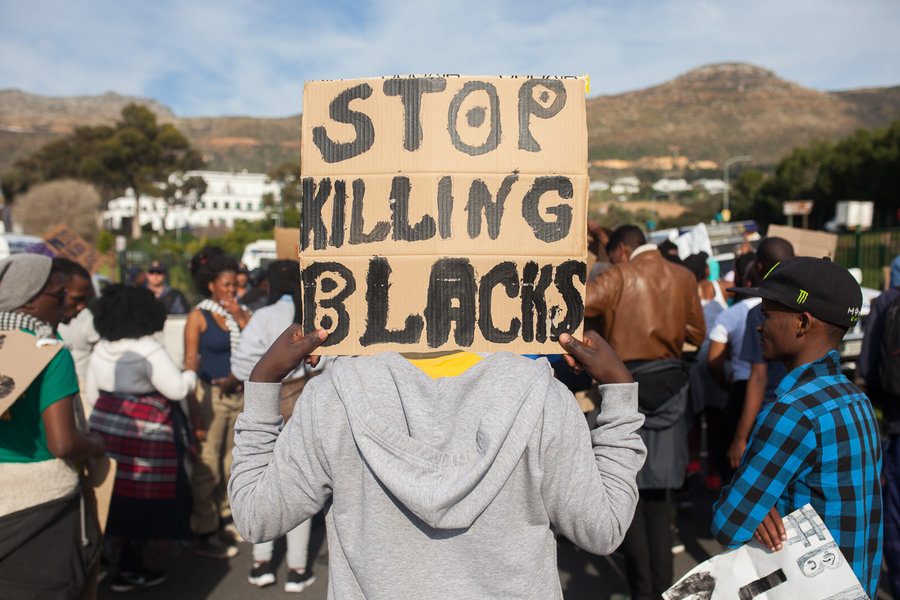African nations join the global #BLACKLIVESMATTER movement amid increasing concern about police brutality
Cape Town, South Africa – The Black Lives Matter movement has jumped continents in the wake of the murder of George Floyd in Minneapolis, and recent police shootings of black men in the United States.
People around the world are marching in solidarity with the United States for racial justice and against excessive use of force by police, especially on African-Americans.
George Floyd’s words, “I can’t breathe,” is reverberating around the world, and African leaders, from Ghana to Namibia, have condemned the systemic racism it reveals.
In addition to physical presence at demonstration rallies, Africans at home and in the diaspora have continued to express their anger and disgust on social media over the killing of George Floyd, and how the events have unfolded since his death on May 25.
In Kinshasa, the U.S. ambassador to Congo, Mike Hammer, highlighted a tweet from a local media entrepreneur who addressed him saying, “Dear ambassador, your country is shameful. …America, which went through everything from segregation to the election of Barack Obama, still hasn’t conquered the demons of racism. How many black people must be killed by white police officers before authorities react seriously?”
Mindful of America’s image on a continent where China’s influence has grown and where many Africans have felt a distinct lack of interest in the Trump administration, some U.S. diplomats have been trying their best to do some damage control.

during a demonstration in support of Black Lives Matter movement.
Ambassador Hammer responded in French, by saying: “I am profoundly troubled by the tragic death of George Floyd in Minneapolis. The Justice Department is conducting a full criminal investigation as a top priority. Security forces around the world should be held accountable. No one is above the law.”
Police brutality and excessive use of force, especially on the black populace, is a major concern to people of African descent, not only in the United States, but also in Europe. The pressure is growing on the French government amid increasing concern about police violence, particularly against minorities in low-income neighbourhoods who trace their roots to the former French colonies. Activists say tensions in such areas worsened amid virus confinement measures, which further empowered police.
The outpouring of anger over the killing of Floyd has risen to the highest level in Africa.
South Africa’s ruling African National Congress party has criticised the US society for placing such a low value on black lives. The African Union (AU) Chairperson Cyril Ramaphosa has termed the death of Floyd a murder.
According to Ramaphosa, the AU “shares the anger of millions in the United States and across the world.” He emphasised, “Global solidarity demands that we also stand as one against all forms of racism and intolerance.”
The Forum of Former Heads of State and Government in Africa has urged countries across the continent to “raise a strong protest” over Floyd’s death.
A statement released by former Beninese, president Nicephore Soglo says, “What level of cruelty must you reach that the entire world finally wakes up and manifests its indignation. Enough is enough.”
Africans who used to be on the receiving end for various human rights abuses including police brutality are now pointing to a double standard by the United States over police treatment of the black minority community.

In a strongly-worded statement, the African Union Commission Chairperson Moussa Faki Mahamat called for “rejection of the continuing discriminatory practices against black citizens.”
This comment echoed other statements released from US embassies or ambassadors in various African countries including Democratic Republic of Congo, Zimbabwe, Kenya, Uganda and Tanzania. Importantly, these statements point to a brewing diplomatic fallout over such blatant abuse of human rights.
But, police brutality does not only happen in the United States, as there are lots of evidence of reckless killings of citizens by police in Britain, France, Germany and many African nations.
In less than a week after George Floyd was choked to death, police in Kenya shot and killed a homeless man for breaking COVID-19 curfew. The victim was one of the 15 people killed by Kenyan security forces so far in lockdown-related incidents. In South Africa, security forces enforcing stay-at-homes have killed at least ten people; six in Uganda, and uncountable in Nigeria.
But these unlawful killings by African policemen haven’t provoked the same popular protest for some reasons.
Africa’s police forces have historically controlled through fear, and there’s the middle-class ability to hire government law enforcement agents and private security to violently control people without question.



